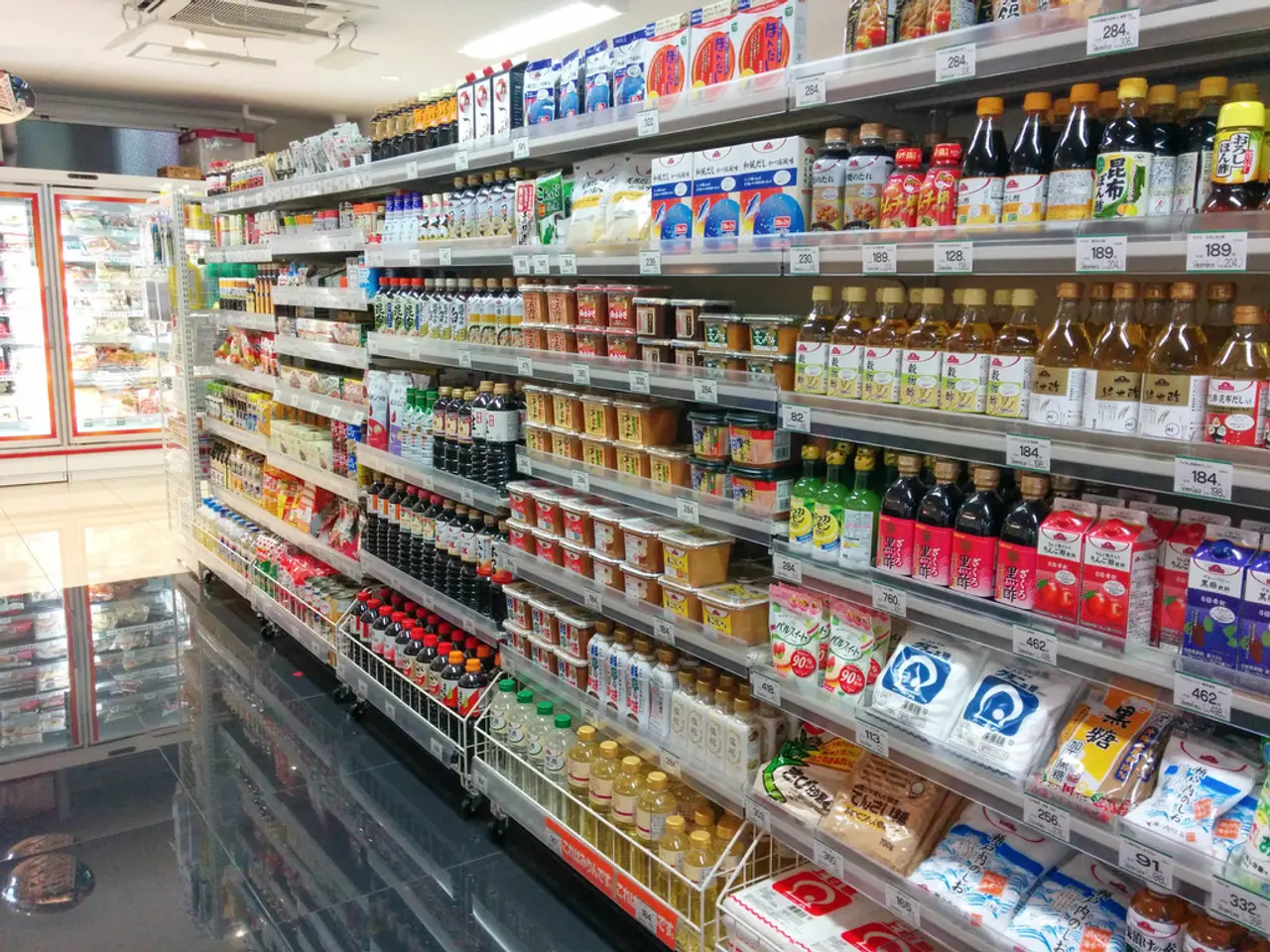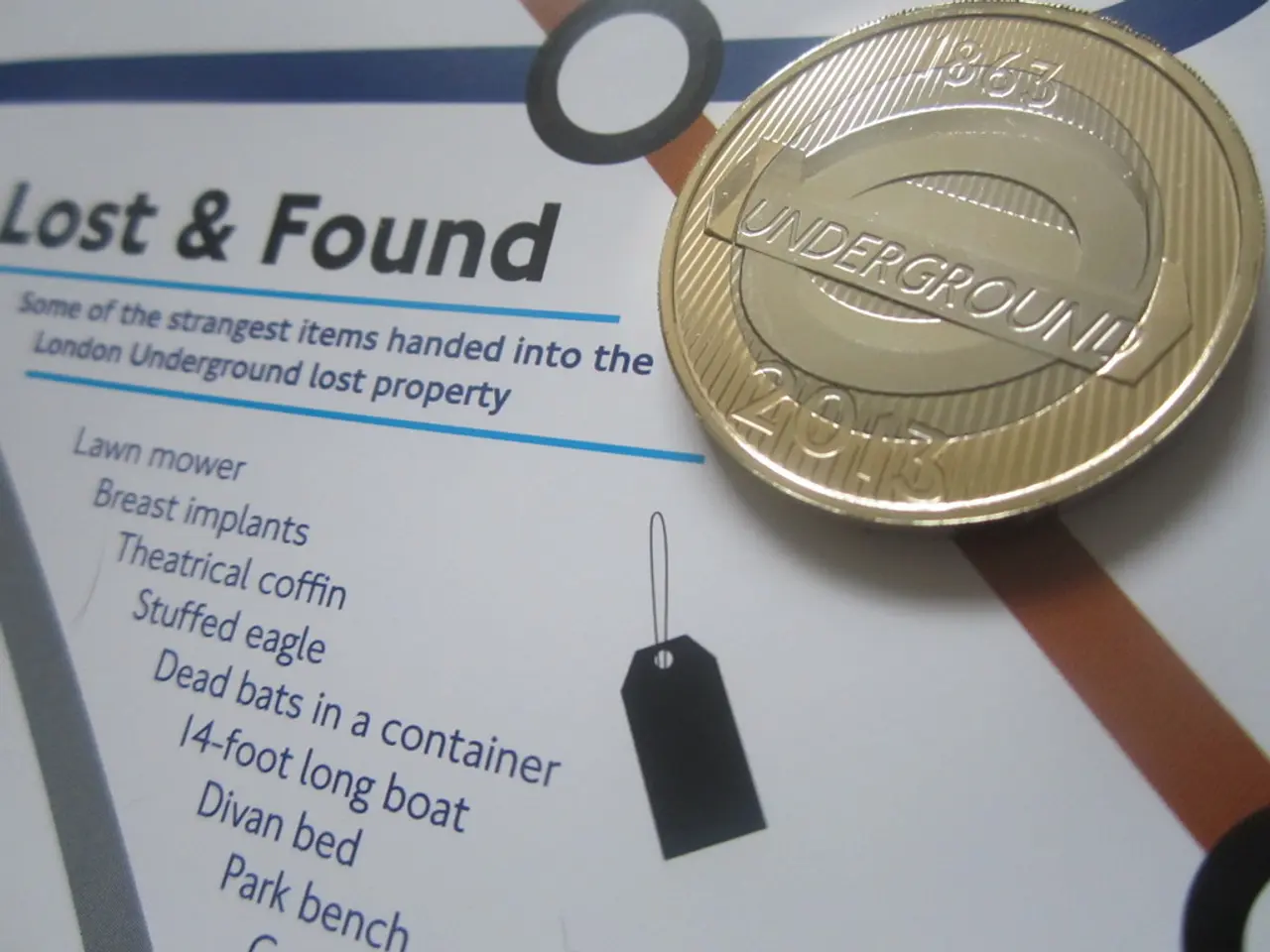Financial sector fostering financial accessibility to bolster economic robustness
Wanna know what the Bank of Ghana (BoG) has been up to? Well, they're working overtime to promote financial resilience in the country, according to its second deputy Governor, Elsie Addo Awadzi.
This financial inclusion push is happening with the National Financial Inclusion and Development Strategy. The key objective? To increase access to affordable financial products and services, especially for individuals, small and micro-businesses, and players from the informal sector.
Elsie Addo Awadzi informs us that BoG has created a favorable regulatory environment to support banking, remittance, and payment services for everyday folks, micro, and small businesses, and the informal sector. This move should help boost financial inclusion in the country.
Over the past few years, Ghana has witnessed a massive digital transformation in financial services, as emphasized by Awadzi in her keynote address at the Institute of Statistical, Social and Economic Research (ISSER)-World Bank Public Engagement.
Awadzi also emphasizes the importance of a robust credit reporting system and collateral registry system, both regulated by the Bank of Ghana, in facilitating access to credit, even for small borrowers. They’ve also invested heavily in mobile money interoperability infrastructure through Ghana Interbank Payment and Settlements Systems (GhIPSS). The result? A significant increase in mobile money usage in the country.
To measure progress in financial inclusion, high-quality, consistent, reliable, accessible, and connected data is essential, according to Addo Awadzi. This data helps identify gaps in inclusion, design appropriate evidence-based interventions, and monitor their implementation and effectiveness. The World Bank Global Findex Database is a valuable data source on access to financial services in developing countries, and the newly-implemented Bank of Ghana online reporting and analytics supervisory tool (ORASS) addresses supply-side data constraints, enhancing reporting capacity.
For an effective and consistent policy formulation, regulation, and design of appropriate financial products and services, a unified data architecture is crucial. The roll-out of the biometric Ghana Card, designated as the single identity card for financial transactions, should help track users across various financial services and facilitate demand and supply-side data collection and analysis.
However, the importance of data integrity, privacy, system robustness, and effective data governance cannot be overstated. It will require expertise at every point to identify and address issues that promote financial inclusion in Ghana.
The BoG's past efforts, including introducing the post office bank system in the 1960s, and licensing rural and community banks in the 1970s, have brought financial services closer to every Ghanaian and every business. Financial services have been gradually brought to the doorsteps of every Ghanaian, and with continuous effort, the BoG aims to achieve its goal—promoting financial inclusion in Ghana's economic and financial resilience.
The BoG's current initiatives encompass an array of strategies, including:
- Issuing the Financial Inclusion for Persons with Disabilities Directive in January 2025, ensuring greater access to financial services for persons with disabilities (1).
- A substantial increase in digital transactions, with over 97% of transaction volumes and 72% of value now conducted digitally (3).
- Record mobile money transactions reaching GH¢365 billion in April 2025, demonstrating Ghana's reliance on mobile financial services as a key component of financial inclusion efforts (5).
- The development of a shared digital identity layer for seamless KYC processes, cross-platform authentication, fraud mitigation, and financial continuity, especially in rural areas. This framework includes integrating biometric authentication into the payment ecosystem (3).
- Future plans to foster collaborative innovation in the financial ecosystem through open banking reforms, recognition of agent banking models, and micro-insurance and pension products delivered through informal sector cooperatives (3).
These initiatives demonstrate the BoG's commitment to advancing financial inclusion and digital transformation tailored to Ghana's unique socio-economic context (1,3).
- The Bank of Ghana (BoG) has issued the Financial Inclusion for Persons with Disabilities Directive, aiming to increase access to financial services for people with disabilities.
- A significant shift towards digital transactions has occurred in Ghana, with over 97% of transaction volumes and 72% of value now being conducted digitally.
- Mobile money transactions in Ghana reached a record GH¢365 billion in April, highlighting the country's reliance on mobile financial services as a key component of financial inclusion efforts.
- The BoG is developing a shared digital identity layer for seamless Know Your Customer (KYC) processes, cross-platform authentication, fraud mitigation, and financial continuity, especially in rural areas, which includes integrating biometric authentication into the payment ecosystem.
- Future plans for the BoG involve promoting collaborative innovation in the financial ecosystem through open banking reforms, recognizing agent banking models, and micro-insurance and pension products delivered through informal sector cooperatives.






